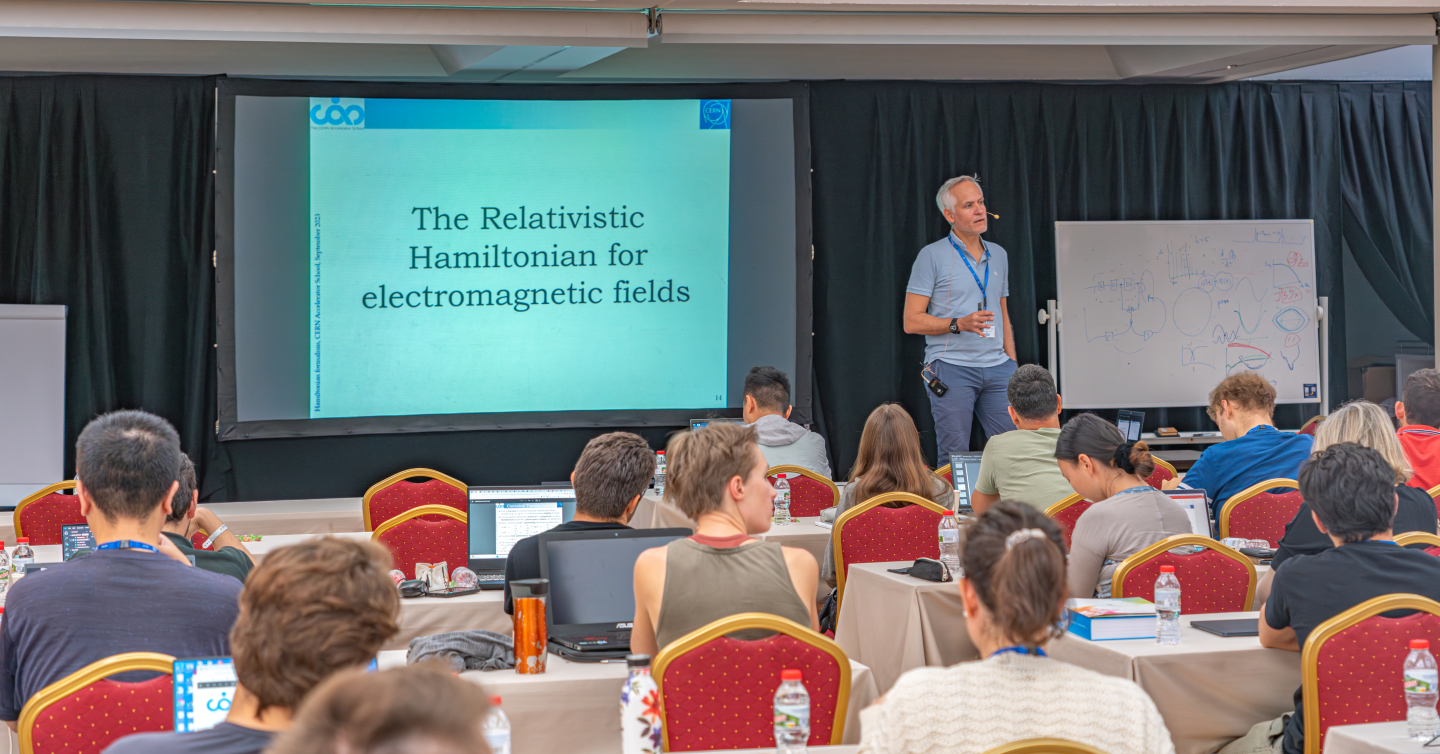Particle accelerators require armies of engineers and physicists for the maintenance of and improvement of current accelerator structure and the design of future ones. The necessary skills are unique and as consequently the demand for specialised profile in research and industry alike has been growing steadily over the last decades. The CERN Accelerators School (CAS) and its courses are necessary to help further train this pool of recruits.
“None of the universities or schools around the world is studying accelerator operation”, says Rende Steerenberg, “We rely on courses like the Basic CAS course, and then all the individual technology courses to speed up the training of our machine technicians.”

Rende Steerenberg, Head of the Operations Group in the Beam Department (BE). (Image: CERN)
Rende Steerenberg, the Operations group leader in the Beams Department at CERN, is a proponent of CERN Accelerator School (CAS) which constitutes an essential part to its training programme.
The Operations group ensure that the LHC and the accelerator infrastructure are continuously updated and improved to meet future needs. With a background in electronics from the Netherlands and experience in beam instrumentation in Grenoble, Rende's fascination with accelerators led him to CERN in 1994, initially hired as an operator on the Proton Synchrotron Booster. “I quickly went to the CAS School in Portugal in 1996, the Introductory one”, he said. “I wanted to know more about the physics and everything behind it. This course helped me understand what was behind the accelerators and how to move forward. So, I started being much more involved in machine studies.” All this curiosity, his continuous learning and experience led him to become the leader of the Operations group, the group running and taking care of the world's biggest and most powerful accelerator, the LHC. From his experience, we can see that becoming an accelerator scientist is a destination with multiple paths.
The Operations group has a continuous collaboration with the Accelerator and Beam Physics (ABP) group to improve the beam performance through all the accelerator chain. Innovative solutions and research opportunities are the outcome of this collaboration.
The ABP group's profile and learning development path might differ slightly from the one in Operations; this is why we discussed with Yannis Papaphilippou, the ABP group leader. His team is tasked with maintaining beam quality throughout the accelerator complex, employing a combination of theoretical insights, simulations, and experimental validations.

Yannis Papaphilippou, Head of the Accelerator and Beam Physics (ABP).
(Image: CERN)
Yannis's path is also quite unconventional; he embarked on his journey from a background in astrophysics. He gathered experience across various continents, before culminating in a pivotal role at CERN, working on the design of the LHC,“I was applying mathematical methods in accelerator models. The beauty of accelerators is that what you are using in theory and doing in simulations, you can test it experimentally. This combination attracted me.“ said Yannis.
“In our group, we have physicists or engineers who are research-oriented. The Introductory CAS course is perfect for people who would like to see an excellent overview of accelerators at the fundamental level. They will get exposed to numerical tools for the first time, and there is no better way to do that,” said Yannis. “We are the biggest beam physics group, probably worldwide, and we are one of the most prominent clients of CAS. This is why we are involved on the CAS program committees and contribute a lot to teaching."
CAS mandate to gather and share knowledge about accelerators does not stop at CERN, but there are many other types of accelerators worldwide. The specialised knowledge of accelerator science is always in high demand around these machines. Professors from institutes all over the world come to CAS to teach. The synergy between teachers and students from different institutes worldwide is a mutually enriching experience.
If you want to know more about CAS, visit the CAS website for more information: https://cas.web.cern.ch/

